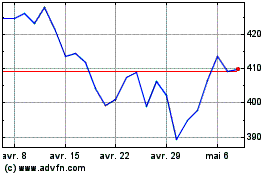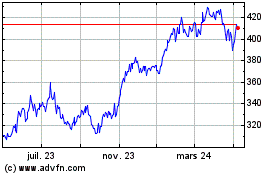By Adam Janofsky
The U.S. Customs and Border Protection agency uses
facial-recognition software at airports to identify impostors.
Stadiums and arenas use it to enhance security. Law-enforcement
agencies deploy it to spot suspects.
But as the technology has become more widespread -- from
catching shoplifters at malls to presenting consumers with targeted
ads -- critics are questioning whether it threatens privacy and
whether it is accurate enough to be reliable.
"The ultimate nightmare is that we lose all anonymity when we
step outside our homes," says Jay Stanley, a senior policy analyst
for the American Civil Liberties Union. "If you know where everyone
is, you know where they work, live, pray. You know the doctors they
visit, political meetings they attend, their hobbies, the sexual
activities they engage in and who they're associating with."
These concerns led San Francisco last month to ban the use of
facial-recognition tools by the police and other city agencies.
Other cities, including Somerville, Mass., and Oakland, Calif., are
considering similar laws.
The escalating push to regulate the technology has also reached
Congress, which held a hearing on the topic on June 4, the second
such discussion in two weeks. The ACLU, meanwhile, is developing a
step-by-step playbook for communities interested in setting
restrictions on facial-recognition systems.
"You've now hit the sweet spot that brings progressives and
conservatives together," Rep. Mark Meadows (R., N.C.) said at the
first hearing on May 22.
"That's music to my ears," Rep. Elijah Cummings (D., Md.)
responded.
"I was hopeful this would spark a conversation about the
pernicious misuse of technology, and to my pleasure it has not only
sparked a statewide conversation but a national one," says Aaron
Peskin, the San Francisco supervisor who led the city's effort.
About a dozen state and city lawmakers from around the country have
reached out to him for information and advice, he says.
Pushing for regulation
As these regulation efforts gain momentum, though, they face
strong opposition.
For one thing, law-enforcement groups argue that the technology
is a valuable tool for identifying suspects and efforts to ban it
could leave many crimes unsolved.
The groups have already won some concessions. For instance, Mr.
Peskin says that he added a handful of amendments to San
Francisco's bill after negotiations with law-enforcement
advocates.
At the same time, some makers of facial-recognition technology
are working with legislators to propose weaker bills. Microsoft,
for example, was involved in crafting a failed Washington state
proposal that would have put several limits on facial recognition
without calling for a ban, among other things.
Still, critics argue that strong restrictions are necessary to
protect privacy and civil rights. And they're pushing a number of
different types of regulations to reach their goal.
Some advocacy organizations argue that facial-recognition
technologies reinforce bias in the criminal-justice system and are
likely to be used to target certain communities. The technologies
could also lead to many incorrect arrests in certain communities,
critics argue: Researchers have documented how some
facial-recognition systems are more likely to misidentify people
with dark skin, for instance.
So, some civil-rights groups are proposing regulations that
would require makers of facial technology to have it independently
tested for accuracy and bias.
A broad coalition of nonprofits are working together to support
bills limiting the use of biometrics, such as AB-1215 in
California, which would prohibit the use of facial recognition for
data collected by police body cameras.
Another major issue for advocates is consent. Some proposed
bills would require organizations that use facial-recognition
technology to obtain people's consent before using the technology
on them.
Organizations like the Electronic Frontier Foundation are
opposing bills with what they see as weak rules, such as requiring
businesses to post signs that they're using facial-recognition
technology instead of requiring opt-in consent or banning the
technology altogether, says EFF senior staff attorney Adam
Schwartz.
But before those ideas make it into law, they must overcome
questions about how exactly they might work in practice.
Take the consent issue. "That simply doesn't make sense in many
places," says Daniel Castro, vice president of the Information
Technology and Innovation Foundation, a Washington, D.C.-based
think tank. "Stores want to use this technology to catch
shoplifting. A shoplifter is not going to opt in."
Stadiums, hotel lobbies and other spots may also present
logistical problems, says Alan Raul, partner at law firm Sidley
Austin LLP and former vice chairman of the White House Privacy and
Civil Liberties Oversight Board.
Consent will likely need to be contextual, with certain large
venues requiring signs that inform people that facial-recognition
software is being used, instead of obtaining permission from every
customer, he says.
Still, there is at least one major facial-recognition system in
place that uses consent. The U.S. Customs and Border Protection
agency, which has been developing facial-recognition systems for
airports since 2013, gives arriving and departing U.S. citizens the
option of doing a manual verification of identity instead of a
facial-recognition scan. (The agency also uses a manual
verification if its recognition system spots a potential
impostor.)
Another potentially thorny issue in the regulation effort:
Lawmakers may find it difficult to agree on what exactly facial
recognition is and what they are trying to regulate, says Clare
Garvie, a researcher who studies facial recognition at the Center
on Privacy and Technology at Georgetown Law.
For example, eye-tracking technology that analyzes what
advertisements people pay attention to, or face-scanning tools that
gauge emotional reactions without identifying individuals, make
facial recognition hard to define.
"Facial recognition encompasses a wide array of possible
technologies, and you don't want regulations to be so broad that it
effectively regulates nothing," she says.
The record so far
Currently, three states have passed bills to protect people's
biometric privacy. One -- Illinois's Biometric Information Privacy
Act, passed in 2008 -- requires companies to get consent before
collecting biometric data, including face scans.
The law has led to a wave of class-action lawsuits alleging that
companies didn't obtain consent -- a result that has likely given
other states pause over enacting similar legislation, says Ms.
Garvie.
Bills in Texas and Washington have similar privacy provisions,
but allow only state attorneys general to sue for violations. And
Washington's law doesn't include facial-recognition data in its
definition of biometric information.
As lawmakers and activists wrestle with regulatory issues, some
critics say there should be a moratorium on the technology until
concerns are addressed and the public forms a consensus on what
guardrails are appropriate.
But those efforts might backfire if people view it as a
crackdown on a technology that can help prevent crime, says Mr.
Raul.
For example, 41% of people said they favored using
facial-recognition software in schools to protect students,
compared with 38% who found it unfavorable, according to a
September Brookings Institution survey of 2,000 people in the U.S.
Half of the respondents said they didn't favor the use of facial
recognition in stores to prevent theft, and 44% said they didn't
favor it in airports to establish identity and in stadiums to
improve security.
"The technology has so many beneficial uses that it's hard to
see the public will feel comfortable stopping something that will
be useful in deterring, investigating and apprehending criminals,"
says Mr. Raul.
Mr. Janofsky is a reporter for WSJ Pro Cybersecurity in New
York. He can be reached at adam.janofsky@wsj.com.
(END) Dow Jones Newswires
June 04, 2019 22:20 ET (02:20 GMT)
Copyright (c) 2019 Dow Jones & Company, Inc.
Microsoft (NASDAQ:MSFT)
Graphique Historique de l'Action
De Mar 2024 à Avr 2024

Microsoft (NASDAQ:MSFT)
Graphique Historique de l'Action
De Avr 2023 à Avr 2024
